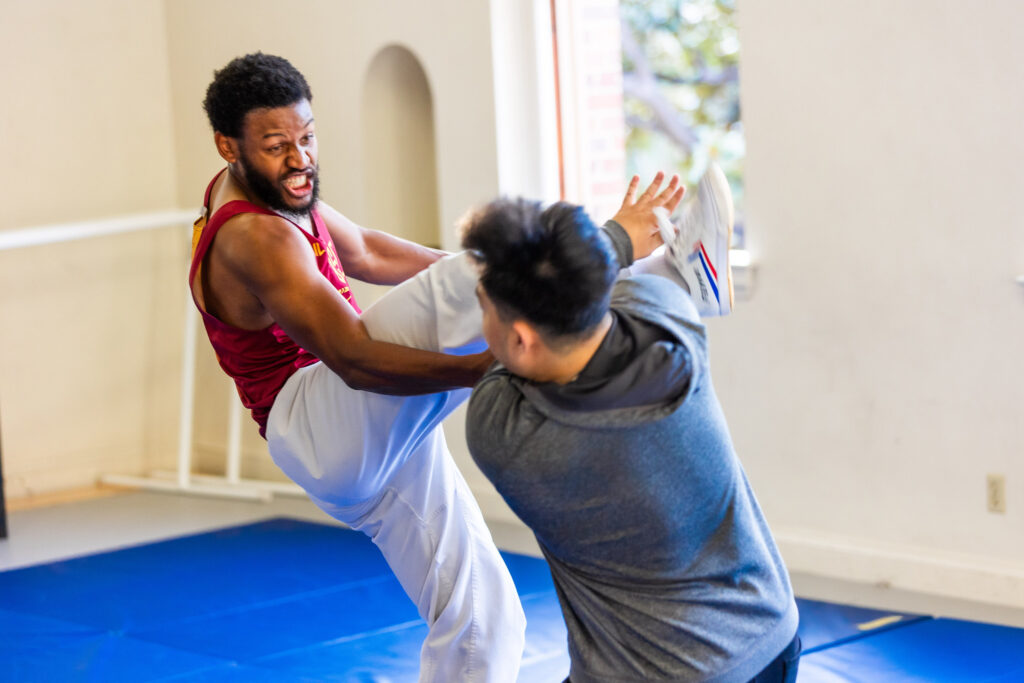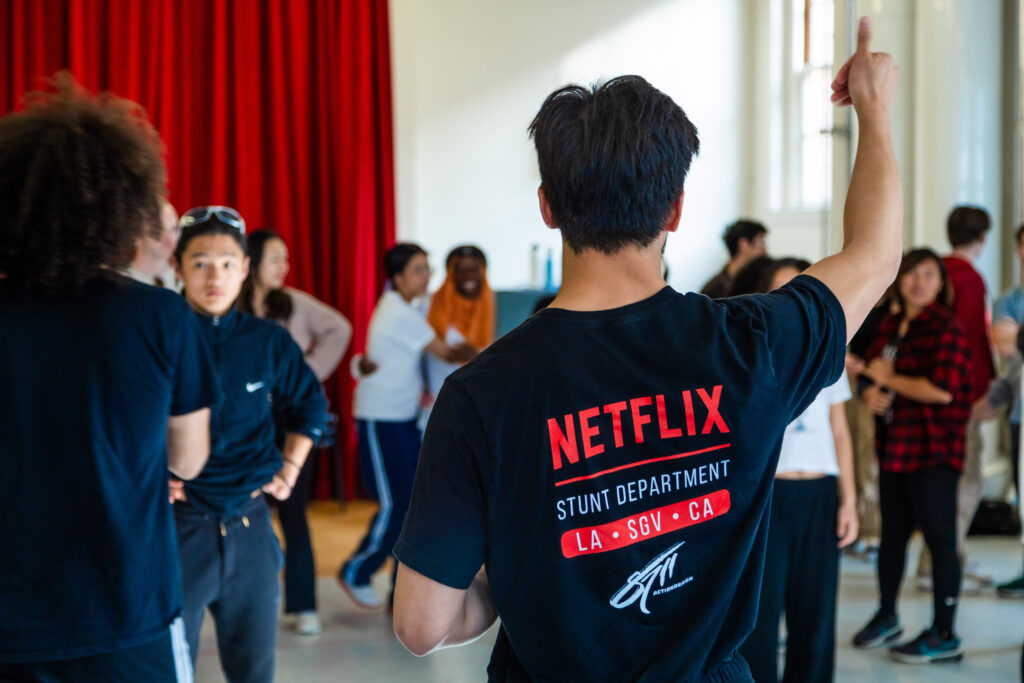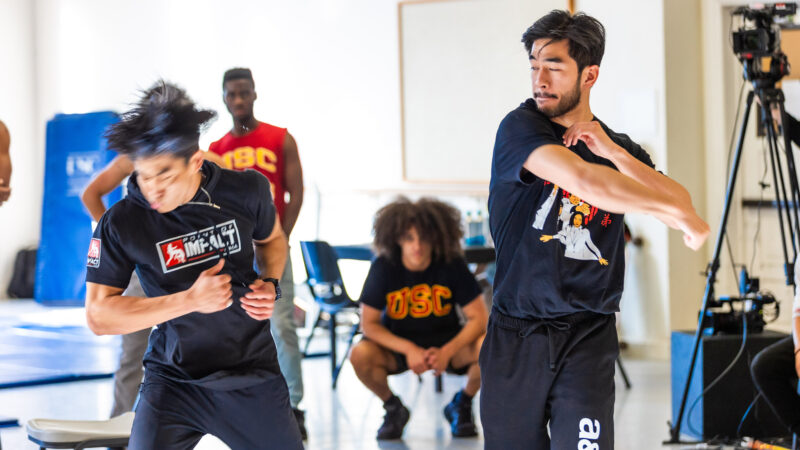What makes a good fight scene?
That’s a question tackled regularly by the USC School of Dramatic Arts in classes and performances, and by the Trojan Stunt Team, an independent student organization at USC. The answer goes beyond traditional fight choreography.
“A good fight scene tells a story,” said Trojan Stunt Team president Andre Walker (BS Business Administration ’25). “Everything should have an intention behind it. It should inform the character. It should reflect the character’s wants, needs, desires, their background. And it should advance the story forward.”
This focus on storytelling was what led the USC School of Dramatic Arts to invite SDA alumnus Justin Chien (BFA Acting ’18) to campus for a fight workshop. Chien, who recently starred in Netflix’s The Brothers Sun, is a master of combining storytelling and choreography.
“From a stunts perspective, his most recent project, The Brothers Sun, features plenty of fight choreography. It’s essential to the character,” Walker said, referring to Charles “Chairleg” Sun, the gangster lead portrayed by Chien in the series. “Through that, Justin is able to portray the character’s arc. He was very intentional about using action to convey the message of how Charles is feeling and where he is at that moment of his life.”
The fight workshop, which was a collaboration with the Trojan Stunt Team, took place in March and was open to all USC students. It consisted of a one-hour Q&A session with Chien, followed by a hands-on instructional training session and a fight choreography competition. Turnout was fantastic, with USC students from various schools showing up to learn staged violence from the Netflix star.

Trojan Stunt Team vice president Gabe Finn (BA Theatre ’26) noted the enthusiastic feedback from students, as well as the encouraging opportunity to hear from “one of their own”—a recent graduate of one of SDA’s acting programs—who had forged his own successful path into the industry following graduation.
“The path after graduating school is the scariest part [of studying acting], in my opinion. After you graduate, it’s like—‘How do you actually get to that next step?’” Finn said. “It’s reassuring to see somebody that has successfully made it to that place, starting from where we all start.”
During the workshop, Chien preached discipline and hard work, crediting his time at SDA for instilling these values in him, and also stressed the importance of a stable private life.
“So you can go wild and crazy when you act,” Walker laughed.
“I was really impressed by how he led the room,” said Casey Fleming, Head of Production of the Trojan Stunt Team (BA Narrative Studies, BFA Themed Entertainment ‘25). “He had a really incredible amount of energy and passion, and a desire to work with people that felt very, very genuine.”
The Trojan Stunt Team was founded in 2019 but had to be rebuilt following the pandemic, and has been steadily growing in size and scope. They host weekly beginners training sessions on Fridays, a more advanced Trojan Action Group session on Sundays, and also have bi-weekly visits from industry veteran Kerry Wong, who was one of the original members of Zero Gravity Stunt Team and has coordinated stunts on films like Pirates of the Caribbean: At World’s End and G.I. Joe: Retaliation.

Though their club has members from a variety of backgrounds, Trojan Stunt Team’s roots in the School of Dramatic Arts run deep. More than half of the members are SDA students and their faculty advisor is SDA alumnus and faculty member Edgar Landa, himself a veteran fight choreographer and endurance sports enthusiast.
“Half the club is theatre majors, people interested in pursuing acting,” Fleming said. Fleming, more interested in film production, puts themselves in the other camp. “From a production side, understanding how stunt actors work and how to work with stunt actors and manage stunts—that’s a huge part of it for me.”
The group is regularly called upon to collaborate with other students in need of physical acting work: they’ve choreographed fight scenes and stunts for other independent student production companies like Dorothy’s Friends Theatre Company, Impulse Theatre Company, and ART/EMIS, and have worked on thesis films and video games for students of the School of Cinematic Arts. They also do their own film shoot every semester, switching back and forth between dramatic and comedic action films. In the fall, they produced Called Shot, a dramatic film; this spring they will shoot sandBOX, a comedy.
Walker, Fleming and Finn highlighted the social aspect of participating in Trojan Stunt Team, emphasizing that everyone at USC is welcome to join in their weekly training sessions and, eventually, their productions.
“I think there’s something unique about Trojan Stunt Team and clubs that have a physical or action-based center, because I think it connects people better and more quickly,” Fleming said. “It’s open to everyone, including people who are not interested in doing stunts professionally.”
“Stunt team is open to everybody,” Walker said even more succinctly. “We want everybody.”
